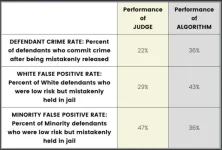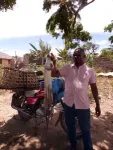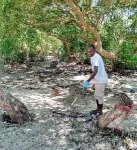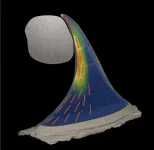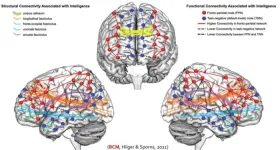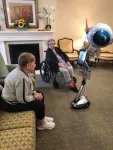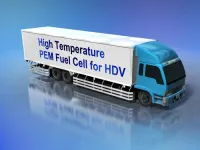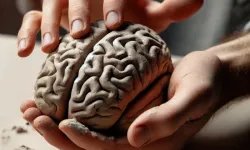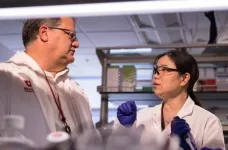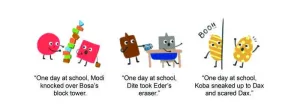(Press-News.org) Society increasingly uses algorithms to make weighty decisions in contexts including criminal justice, healthcare, and finance, a trend that has been criticized for institutionalizing bias and sacrificing fairness. In a pre-registered study, Kirk Bansak and Elisabeth Paulson asked 9,000 US-based study participants to choose between decision-makers for two high stakes situations: pretrial release and bank loan applications. Participants chose either between two human decision-makers, between two algorithmic decision-makers, or between one human and one algorithmic decision-maker. In each scenario, participants were presented with simulated statistics about the performance of the decision-makers. Participants prioritized efficiency over fairness when choosing decision-makers. This pattern was broadly consistent regardless of the race, political party, education level, or beliefs about artificial intelligence of the participants. The pattern also held regardless of whether the decision-makers were human or algorithmic. However, participants were slightly more likely to pick humans than algorithms. Republicans had a stronger preference for humans than Democrats did. When asked directly, a large percentage of participants claimed that fairness was one of their top priorities, despite scarcely taking fairness into account in their actual decisions. According to the authors, demonstrably efficient algorithms will likely overcome cultural aversion to algorithms for all groups.
END
Choosing between human and algorithmic decision-makers
2024-12-10
ELSE PRESS RELEASES FROM THIS DATE:
High-speed rail and regional environmental inequality
2024-12-10
The introduction of high-speed rail reduced spatial environmental inequality in China by helping elements such as green technologies spread across the country. Shengjun Zhu and colleagues hypothesized that the introduction of high-speed rail between 1998 and 2010 helped facilitate the spread of elements including capital, labor, green technology, and information, particularly from leading to lagging areas. These trends could contribute to the reduction of industrial pollution, and the authors hypothesized that ...
Long-distance friendships can provide conservation benefits
2024-12-10
PULLMAN, Wash. – While sustaining friendships from afar can be challenging, they may offer unexpected benefits for environmental conservation.
A Washington State University-led study, recently published in Conservation Letters, found that these social ties can positively influence community-based conservation. While the study focused on 28 fishing villages in northern Tanzania, it has potential broader implications for global conservation efforts.
“Our findings challenge the notion that external connections undermine conservation,” said Kristopher Smith, the study’s lead author and a postdoctoral ...
The biomechanics of the rose prickle
2024-12-10
It is said that every rose has its thorn, but technically speaking, roses have prickles. Prickles are derived from the epidermis of the plant, whereas true thorns are modified stems. Rose prickles defend the plant from herbivores and help the plant support itself on surrounding objects. Liat Levavi and Benny Bar-On investigated the biomechanical properties of the prickles of the dog rose (Rosa canina Linnaeus) with a view towards features that might be used in the design of miniature anchoring platforms. ...
Machine learning prediction of human intelligence
2024-12-10
AI can predict human intelligence by looking at the connections of a working human brain. Neuroscientists can predict intelligence from brain structure and function—to a point. Previous studies have suggested that intelligence is widely distributed across the brain. Kirsten Hilger and colleagues used machine learning models to predict multiple kinds of intelligence from brain connections of 806 healthy adults while resting and while completing tasks. Fluid intelligence includes inductive and deductive reasoning abilities that do not rely on context, while crystallized intelligence reflects the ability to apply knowledge from ...
Empowering older adults with home-care robots
2024-12-10
Advances in medicine have led to an increase in human longevity. Estimates suggest that by 2030, one in every six individuals globally will be aged over 60 years. This rapid increase in the aging population implies a larger number of aged individuals requiring care. Family members and professional caregivers may not be able to meet this increasing demand. Furthermore, reports suggest a significant shortage of workforce, including nurses, in several developed countries, underscoring the need for additional strategies that ...
New concept for sustainable fuel cell polymer electrolytes overcomes barriers in high-temperature, low-humidity use, advancing net-zero carbon goals
2024-12-10
A research group led by Atsushi Noro at Nagoya University in Japan has announced a novel design concept for fuel cell electrolytes, utilizing a phosphonic acid polymer with hydrocarbon spacers. This innovative concept allows fuel cells to operate effectively under high-temperature (above 100°C) and low-humidity conditions, addressing crucial barriers to their broader use. The research has been published in ACS Applied Polymer Materials.
By electrochemically reacting hydrogen and oxygen, fuel cells produce electricity while emitting only water, highlighting their clean energy capabilities. However, perfluorosulfonic ...
Sculpting the brain (without chisel or scalpel)
2024-12-10
Imagine being able to inscribe a new pattern of activity into a person’s brain that would allow for faster learning, or better treatment of psychiatric and developmental disorders such as depression or autism. Now imagine being able to do that in a way that doesn’t require brain surgery or any physical manipulation. Sounds like science fiction?
It still is. But that’s exactly what Coraline Iordan, an assistant professor of brain and cognitive sciences and of neuroscience at the University of Rochester has been working toward, showing for the ...
Wrong trees in the wrong place can make cities hotter at night, study reveals
2024-12-10
University of Cambridge media release
Wrong trees in the wrong place can make cities hotter at night, study reveals
UNDER STRICT EMBARGO UNTIL 10:00 AM UK TIME / 05:00 AM (US ET) ON TUESDAY 10TH DECEMBER 2024
While trees can cool some cities significantly during the day, new research shows that tree canopies can also trap heat and raise temperatures at night. The study aims to help urban planners choose the best combinations of trees and planting locations to combat ...
New gene therapy reverses heart failure in large animal model
2024-12-10
A new gene therapy can reverse the effects of heart failure and restore heart function in a large animal model. The therapy increases the amount of blood the heart can pump and dramatically improves survival, in what a paper describing the results calls “an unprecedented recovery of cardiac function.”
Currently, heart failure is irreversible. In the absence of a heart transplant, most medical treatments aim to reduce the stress on the heart and slow the progression of the often-deadly disease. But if the gene therapy shows similar ...
Young children less likely than adults to see discrimination as harmful
2024-12-10
A White House report earlier this year outlined how discrimination, and specifically racial discrimination, persists in the United States today, raising questions about when attitudes underlying these behaviors are formed.
Past scholarship has found discriminatory views increase as children grow older. However, new work by a team of New York University psychology researchers shows that young children in the US are less likely than adults to see discrimination as harmful, indicating these beliefs begin at an early age. Moreover, children ...
